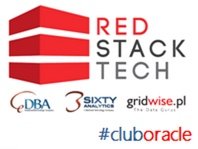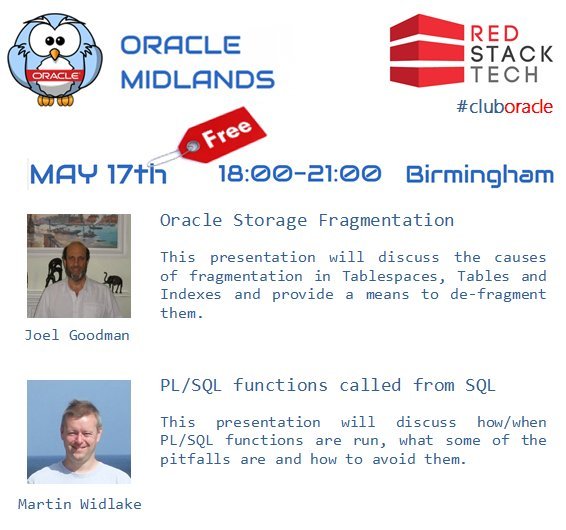 Early tomorrow I start a small series of events in Paris and the Netherlands.
Early tomorrow I start a small series of events in Paris and the Netherlands.
Tomorrow I fly to Paris to speak at the Paris Province Oracle Meetup. It will be my first time in Paris, so I’ll try to hit a few of the sites in the city centre if I can. I was originally hoping to fly out the same night as I have an event the following day, but the flights for that didn’t work out. Instead I’m staying in a hotel at the airport. I’ve got an early flight out of Charles de Gualle airport, so I figured I’d take the easy (but boring) approach of staying at the airport.
The next morning I fly to Amsterdam, take a train, then a taxi to the hotel, followed by a taxi to the OTN Cloud Developer Challenge (formerly known as the Hackaton). It started life as an extra day tagged on to an AMIS event by the Oracle ACE Program, like an ACE Briefing, but became a hackathon. I’m not sure if other people are allowed into it, but a few of us have got into teams and we are going to try and develop stuff with Oracle Cloud services. It’s going to be a bit of a magical mystery tour as most of the people in my team are database people and know nothing about the developer and mobile cloud services. If we are able to produce something with them, it will prove they are easy. 🙂
 The next two days are the AMIS 25 – BEYOND THE HORIZON event, which is a two day Oracle conference, celebrating 25 years of AMIS. In addition to the sessions, the hackathon teams will still be beavering away with their projects. 🙂
The next two days are the AMIS 25 – BEYOND THE HORIZON event, which is a two day Oracle conference, celebrating 25 years of AMIS. In addition to the sessions, the hackathon teams will still be beavering away with their projects. 🙂
There are three days between this event and the next, so I decided to book myself into a hotel in the centre of Amsterdam for 3 days. It’s about 25+ years since I was in Amsterdam and I can’t remember a thing about the city. Both previous trips were with a gang of university friends and we pretty much slept through the day and partied at night.
I’ve been watching Casey Neistat‘s vlogs for some time and recently he spent a few days in Amsterdam and it looked really nice. Rather than staying in a hostel and seeing the city by night, this time I’m staying in a proper hotel and I’m going to take a look at the city by day. Getting old? Yeah! 🙂
 The last event of this mini-tour is the DBA and SQL Celebration by the Dutch Oracle User (OGH). This was actually the first event I was invited to and the rest just kind-of slotted in around it. It’s nice when you can get several events in to a single trip. It just feels more worthwhile somehow. 🙂
The last event of this mini-tour is the DBA and SQL Celebration by the Dutch Oracle User (OGH). This was actually the first event I was invited to and the rest just kind-of slotted in around it. It’s nice when you can get several events in to a single trip. It just feels more worthwhile somehow. 🙂
If you are coming to any of the events, it’ll be good to see you!
Cheers
Tim…
PS. If you can ask the French Truckers not to affect my travel plans that would be really nice! 🙂
 It’s 4 years since I started at my current company.
It’s 4 years since I started at my current company.

 Followers of the blog will know I’ve recently migrated the website to AWS. Yesterday I bit the bullet and cancelled my dedicated server.
Followers of the blog will know I’ve recently migrated the website to AWS. Yesterday I bit the bullet and cancelled my dedicated server.
 Another recent release that I managed to miss was
Another recent release that I managed to miss was 
 A comment on
A comment on